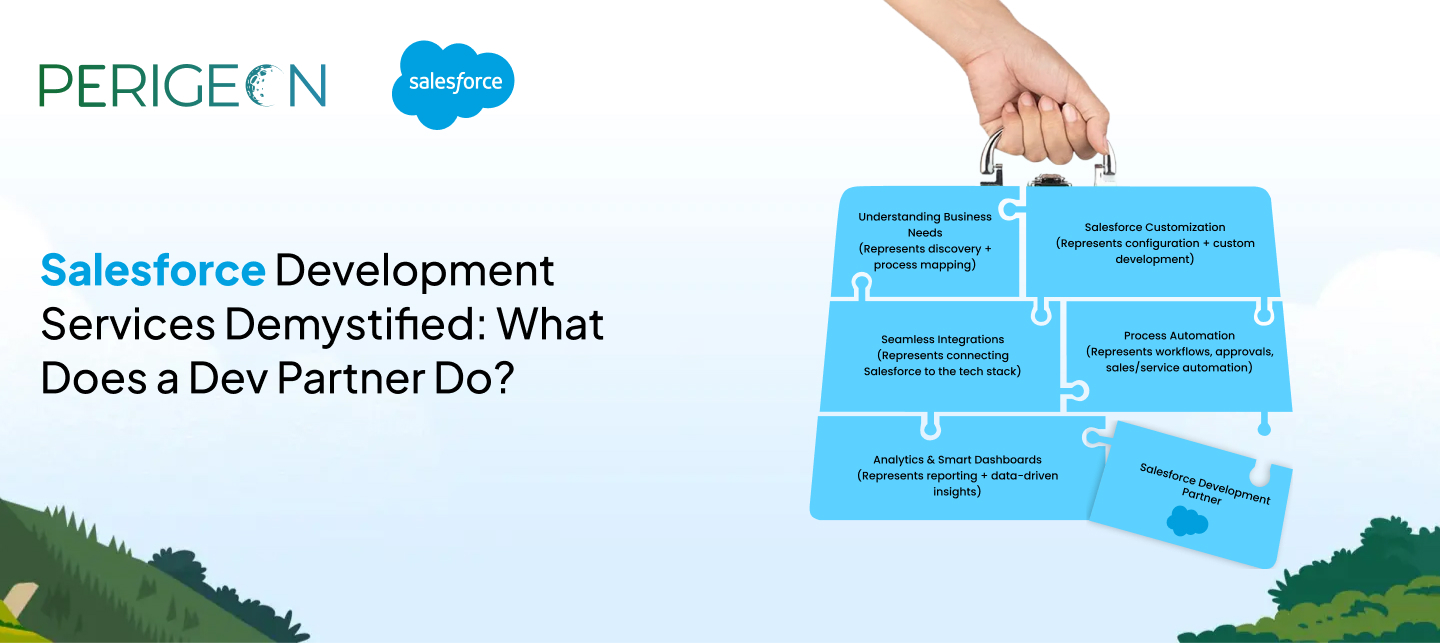In today’s digital-first marketplace, Salesforce has become the backbone of growth for businesses. But as powerful as the platform is, leveraging its full potential requires more than out-of-the-box features. This is where a Salesforce development partner steps in.
A Salesforce development partner helps businesses customize, optimize, and extend Salesforce to match their unique processes, goals, and customer experience needs. But what exactly do they do? And how do they add value beyond what your in-house team can manage?
This blog breaks down everything.
1. Understanding Business Needs: The Foundation of Every Salesforce Build
Before any development begins, a Salesforce partner takes time to understand your workflows, existing systems, and challenges.
They typically:
- Map your business processes
- Identify gaps in your current CRM usage
- Suggest solutions aligned with your industry and goals
This ensures your Salesforce setup is not just functional—it’s strategic.
2. Customizing Salesforce to Fit Your Business
Salesforce is highly configurable, but many businesses need deeper customization.
A development partner helps with:
- Custom Objects & Fields
- Custom Workflows & Automation Rules
- Lightning Components & UI Enhancements
- Apex Triggers & Classes
These customizations ensure Salesforce behaves exactly how your teams need it to.
3. Building Integrations: Connecting Salesforce to Your Entire Tech Stack
Modern businesses rely on multiple technologies. Your Salesforce partner ensures all systems communicate seamlessly.
Common integrations:
- ERP systems (SAP, Oracle)
- Marketing automation (HubSpot, Marketo)
- E-commerce (Shopify, Magento)
- Finance & billing platforms
The goal: eliminate data silos and create a single source of truth.
4. Automating Processes for Efficiency and Accuracy
Salesforce automation transforms productivity.
A dev partner helps automate:
- Lead assignment and nurturing
- Sales pipelines
- Service workflows
- Contract approvals
- Inventory or order management
Automation reduces manual effort and ensures consistent execution.
5. Developing Scalable, Secure Solutions
Salesforce partners build solutions that can grow with your business. They ensure:
- Clean, maintainable code
- Proper security and permissions
- Best-practice architecture
This prevents long-term technical debt.
6. Creating Dashboards and Analytics for Better Decisions
A Salesforce developer sets up dashboards that give real-time visibility into:
- Sales performance
- Customer service KPIs
- Marketing ROI
- Forecasting insights
With the right reporting, leaders make faster, smarter decisions.
7. Ongoing Support, Maintenance & Enhancements
Salesforce evolves constantly. A development partner:
- Manages updates & releases
- Fixes bugs or workflow issues
- Enhances features as business needs grow
- Provides training for teams
It’s an end-to-end relationship, not a one-time project.
8. Why Work With a Salesforce Development Partner?
Because Salesforce isn’t just software—it’s a strategy.
A partner brings:
- Expertise across industries
- Faster development cycles
- Future-proof architecture
- Compliance & security knowledge
- Reduced internal workload
Most importantly: they ensure you get maximum ROI from your CRM investment.
Final Thoughts
A Salesforce development partner transforms Salesforce from a tool into a competitive advantage. Whether you’re scaling sales, improving operations, or delivering better customer experiences, the right partner helps you build a CRM ecosystem that grows with your business.
If you need help modernizing your Salesforce setup, Perigeon Software delivers tailored CRM, automation, and integration solutions designed for growth.




